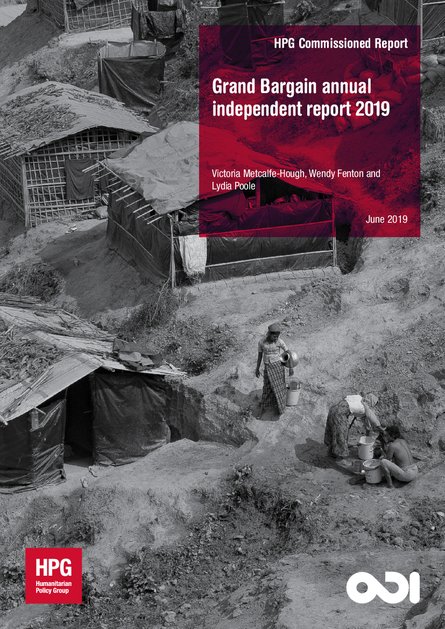
In May 2016, representatives from 18 donor countries and 16 aid organisations (including the UN, the Red Cross/Red Crescent Movement and NGOs) agreed a ‘Grand Bargain’ outlining 51 separate commitments to improve the efficiency and effectiveness of international humanitarian aid. These entities agreed to a voluntary self-reporting mechanism, supported by an annual independent report, in order to measure their collective progress against the agreed commitments.
Conducted for the second year running by the Humanitarian Policy Group (HPG), the 2019 report finds that the Grand Bargain continues to attract substantial institutional investments from most signatories, many of whom have integrated the concept and the commitments into corporate strategies and policies and used the framework to shape institutional practice. Signatories continue to see the potential of the Grand Bargain as a lever for change, to resolve or successfully navigate longstanding challenges and to increase system-wide efficiency and effectiveness.
However, there is general consensus that the potential of the Grand Bargain has yet to be realised, and that the investments made thus far need to be sustained for at least a further two to three years before returns will be fully apparent. Even so, there is evidence that these investments are starting to bring dividends, including contributing to the normative and operational shift to use of cash programming, driving a normative shift towards localisation, bringing about significant increases in the volume of multi-year funding available and successfully testing the idea of a harmonised reporting format.
But despite the articulation of collective priorities, a more streamlined structure and a results-focused reporting approach, further efforts to address the underlying problems in the structure, vision and focus of the Grand Bargain are required to ensure that it can deliver on its original promise.
The report recommends key areas for action:
- Adopt a strategic approach to mitigate remaining challenges and maximise opportunities to make greater progress.
- Undertake concerted high-level political dialogue aimed at navigating challenges to success.
- Define more clearly what the ‘success’ of the Grand Bargain will look like.
- Get the bargain back on track.
- Consolidate efforts to lighten the bureaucratic burden and better support implementation of the commitments.
- Empower existing governance structures to deliver.
- Strengthen political leadership to help navigate remaining challenges.